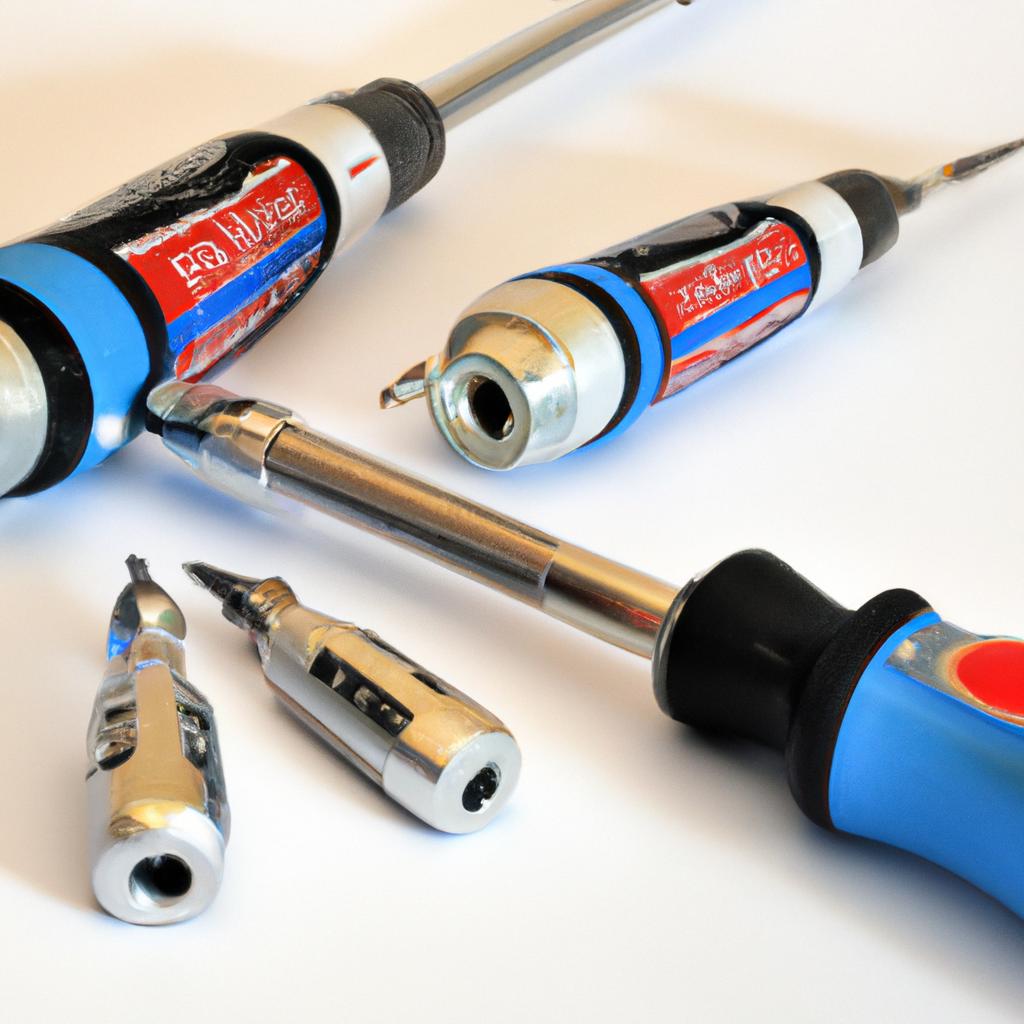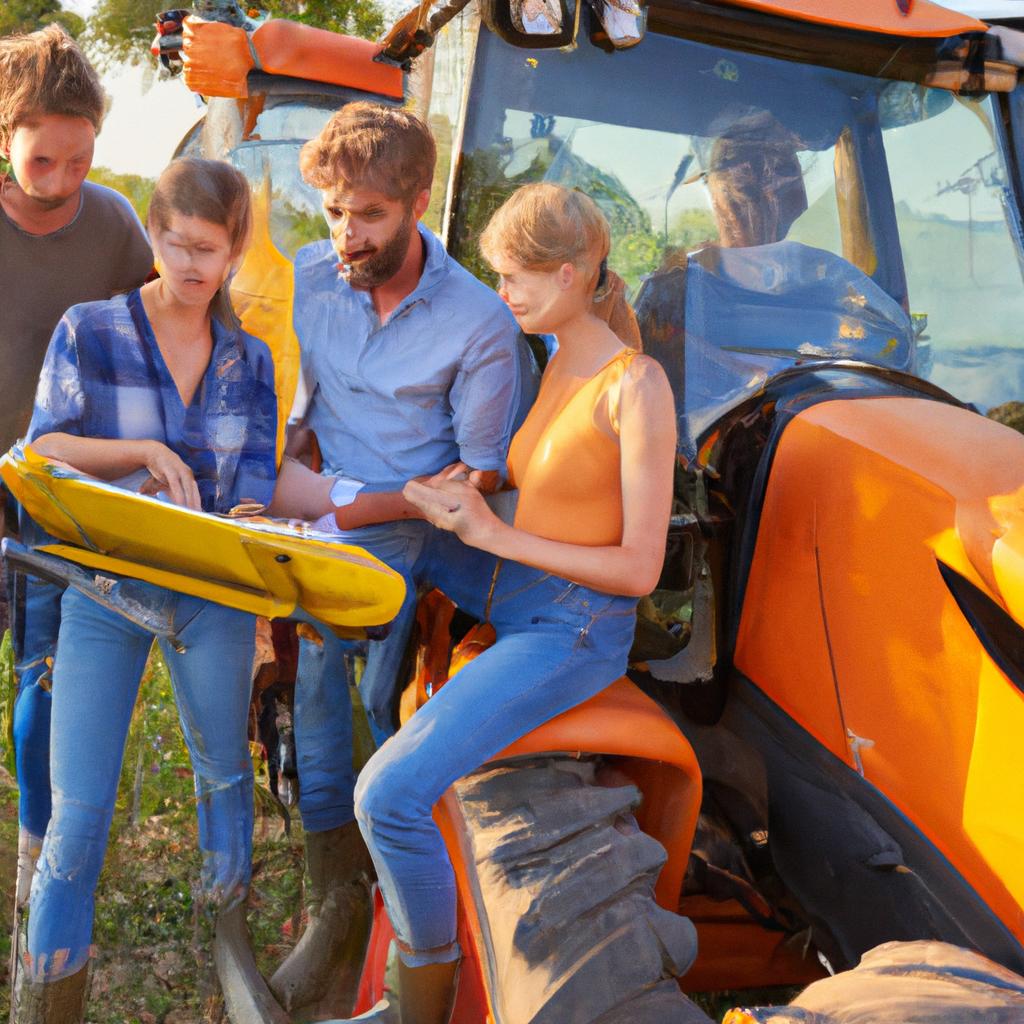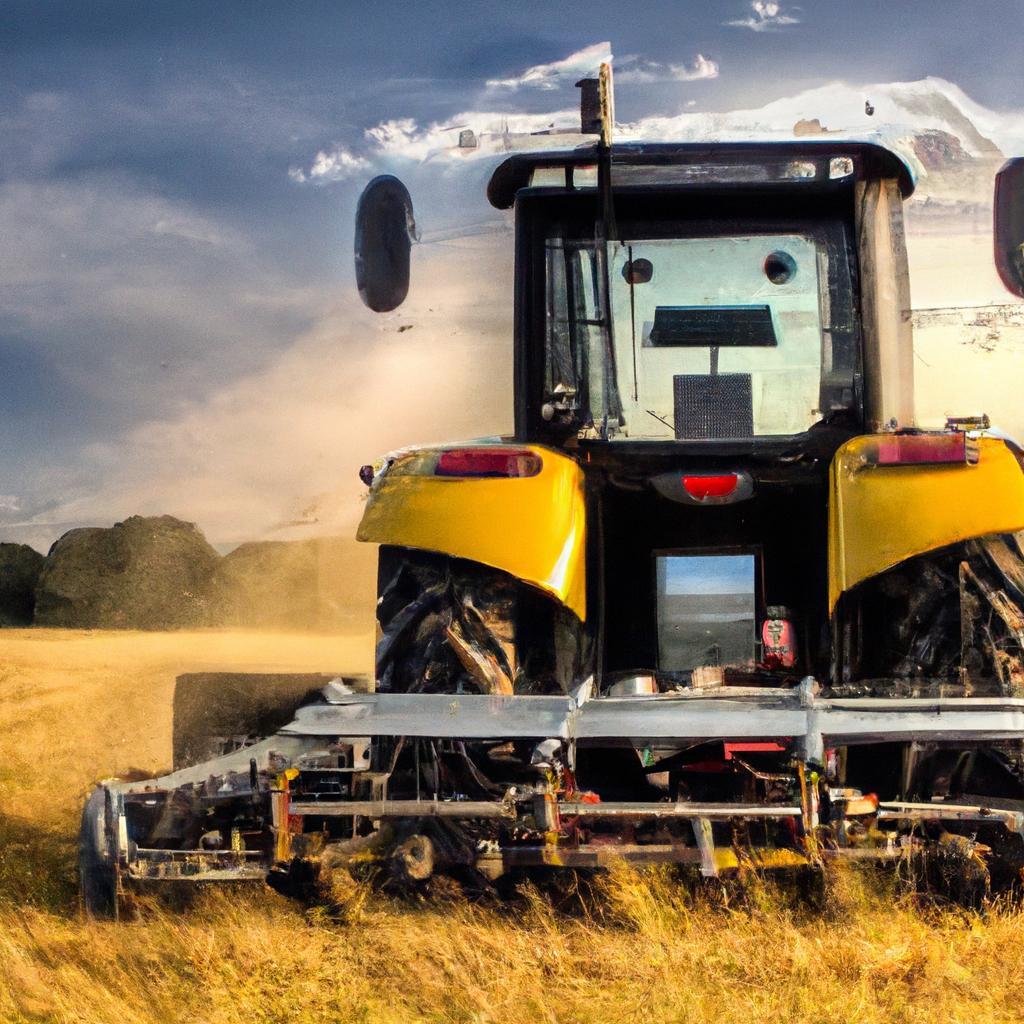This post may contain affiliate links which means I may receive a commission for purchases made through links. Learn more on my Private Policy page.
In the heart of every successful farm lies a crucial blend of hard work, dedication, and, perhaps most importantly, the right tools and machinery. Selecting the appropriate equipment can dramatically influence the efficiency and productivity of your agricultural endeavors, whether you’re tilling soil, planting seeds, or harvesting crops. With a plethora of options available, from hand tools to high-tech machinery, the selection process can feel overwhelming. However, understanding your specific needs, the types of tasks at hand, and the terrain on which you work is key to making informed choices. In this article, we will guide you through the essential considerations that will empower you to choose the best farm tools and machinery tailored to your unique agricultural needs, ensuring that your farm not only thrives but flourishes as well.
Understanding Your Farming Requirements
Before investing in any farm tools or machinery, you must thoroughly evaluate your specific farming requirements. Every farm is unique, influenced by factors such as the type of crops you grow, the size of your land, and your overall farming goals. Engage in a careful assessment of the following aspects to help steer your decision:
- Type of Farming: Determine if you are focusing on crop farming, livestock management, or both.
- Field Size: Consider the acreage you manage, as this will affect the scale and power of the tools you need.
- Soil and Climate: Understand the characteristics of your soil and the climate conditions that may influence farming practices.
- Your Budget: Establish a realistic budget that accommodates both essential and advanced machinery.
Additionally, it’s crucial to anticipate your future needs. Farming technology is consistently evolving, and tools or machinery that align with your current practices may soon become obsolete. Assess the following points to ensure you are choosing adaptable equipment:
| Consideration | Current Needs | Future Adaptability |
|---|---|---|
| Tool Versatility | General farming tasks | Attachments for specialized functions |
| Maintenance Requirements | Basic upkeep | Availability of parts and service |
| Scalability | Immediate use | Capacity to expand as operations grow |

Evaluating Tool Quality and Durability
When it comes to selecting farm tools and machinery, the quality and durability are crucial factors that will determine the efficiency and longevity of your investment. High-quality tools typically feature **robust materials**, such as stainless steel or hardened carbon, which are resistant to rust and corrosion. It’s essential to examine the construction of these tools, focusing on **joinery, welds, and moving parts**. Well-crafted tools will not only withstand daily use but also require less frequent replacements, ultimately saving you money in the long run. Look for brands that offer warranties, as this is often a sign of confidence in their product quality.
To aid in your evaluation, consider creating a checklist that includes the following key points:
- Material type: **Stainless steel, aluminum, or composite** for resilience.
- Brand reputation: **Established brands** often have better quality assurance practices.
- Customer reviews: Look for feedback regarding **long-term use and performance**.
- Ease of maintenance: Tools that are easy to **clean and repair** tend to last longer.
Additionally, gauge the **weight and ergonomics** of the tools you are considering, as these factors can affect not only performance but also the safety and comfort during extended use. Heavier tools may imply sturdiness, but ensure that they are manageable and suitable for your specific farming tasks.

Exploring Technology Innovations in Farm Machinery
Advancements in technology have transformed the landscape of agriculture, leading to the development of innovative farm machinery that enhances productivity and efficiency. Farmers today have access to a vast array of tools designed to simplify labor-intensive tasks, optimize resources, and reduce environmental impact. Some key technologies to consider include:
- Precision Agriculture: Utilizing GPS and IoT devices for soil monitoring and crop management.
- Autonomous Equipment: Tractors and drones equipped with AI for tasks such as planting and harvesting.
- Smart Irrigation Systems: Automated systems that adjust water usage based on weather patterns and soil moisture levels.
- Biodegradable Materials: Sustainable machinery components that minimize ecological footprints.
When selecting farm tools and machinery, it is essential to assess the unique requirements of your operation. Factors such as farm size, crop type, and soil conditions play a crucial role in determining which equipment will offer the best return on investment. A helpful framework for evaluation includes:
| Criteria | Considerations |
|---|---|
| Cost | Initial purchase price vs. long-term savings on labor and inputs |
| Compatibility | Integration with existing machinery and technology |
| Scalability | Ability to expand and adapt as your farm grows |
| Support | Availability of training and maintenance services |

Budgeting Wisely for Agricultural Investments
Making informed financial decisions when investing in farm tools and machinery is crucial for maximizing productivity and ensuring sustainability. It’s essential to carry out a thorough assessment of your needs before plunging into purchasing equipment, as not all tools will serve your specific requirements. Start by identifying the types of tasks that need to be accomplished and prioritize them. Consider factors such as durability, maintenance costs, and the potential for resale value. Look into the following key aspects:
- Long-Term Needs: Evaluate how your farm may evolve and whether certain tools will still be relevant in the future.
- Operational Efficiency: Choose tools that boost productivity while minimizing labor costs.
- Financing Options: Investigate the availability of loans or leasing options to ease the upfront financial burden.
Furthermore, budget planning shouldn’t just revolve around acquisition costs; other hidden expenses can impact your bottom line significantly. Create a detailed budget that covers initial expenses, expected maintenance, and any potential upgrade costs. To aid in visualizing your investment, consider laying out your anticipated monthly expenses versus expected productivity gains in a simplified table format:
| Expense Type | Estimated Monthly Cost ($) | Expected Productivity Gain (%) |
|---|---|---|
| Tool Purchase | 500 | 20 |
| Maintenance | 100 | 5 |
| Fuel Costs | 150 | 10 |
By mapping out these essential aspects, you can ensure that your financial resources are utilized wisely, setting a solid foundation for growth and sustainability in your agricultural investments.
Q&A
Q&A: How to Choose the Best Farm Tools and Machinery for Your Needs
Q1: What are the basic types of farm tools I should consider?
A1: The basic types of farm tools can be categorized into hand tools, power tools, and machinery. Hand tools include items like shovels, hoes, and pruners, which are essential for manual tasks. Power tools, such as electric trimmers and tillers, enhance productivity, while larger machinery like tractors, harvesters, and plows are crucial for large-scale operations. Assessing your farm size and the tasks at hand will guide your choices.
Q2: How do I determine the right size of machinery for my farm?
A2: The size of the machinery should correspond to the dimensions of your farm and the scale of your operations. For small to medium farms, compact tractors and smaller implements often suffice. Larger farms may require heavy-duty equipment. It’s important to consider not just the acreage, but also the types of crops you grow and the specific tasks you need to accomplish.
Q3: Should I prioritize quality or cost when selecting tools and machinery?
A3: Striking a balance between quality and cost is essential. While lower-priced tools may seem attractive initially, investing in durable, high-quality equipment can lead to greater long-term savings through reduced maintenance and replacement costs. Consider your budget but also look at the lifespan and warranty of the tools to ensure you’re getting value for your investment.
Q4: How important is brand reputation when choosing farm tools and machinery?
A4: Brand reputation can be a significant indicator of reliability and performance. Established brands often have rigorous quality control and customer support. Research reviews, seek recommendations from fellow farmers, and consider brands known for their service and innovation in the farming sector. However, do not overlook lesser-known brands that may offer great value.
Q5: What features should I look for in farm machinery?
A5: Key features to consider include ease of use, versatility, fuel efficiency, and maintenance requirements. For instance, ergonomic designs minimize user fatigue, while multifunctional tools can perform various tasks, saving you time and space. Look for machinery with a clear maintenance schedule and parts availability to reduce downtime.
Q6: How can I ensure my chosen tools suit my farming practices?
A6: Understand your farming practices and specific needs. Conduct an assessment of what tasks you need the tools for—whether tilling, planting, harvesting, or maintenance—and then choose tools designed for those purposes. Consulting with local agricultural extension services or experienced farmers can provide insight into which tools work best for your particular farming method.
Q7: Are there any new technologies worth considering in farm equipment?
A7: Absolutely! Innovations such as precision farming technologies, GPS-guided equipment, and automated machinery can significantly enhance productivity and efficiency. Drones for crop monitoring and software for farm management are also gaining popularity. Researching these advancements can give you a competitive edge and help you work smarter, not harder.
Q8: How can I buy farm tools and machinery wisely?
A8: Buying wisely involves a few strategies: First, make a wishlist based on your needs and prioritize. Second, compare prices from multiple suppliers, both online and offline, to find the best deals. Third, consider purchasing used equipment that’s still in good condition, and don’t hesitate to negotiate the price. always test machinery before buying if possible, to ensure it meets your expectations.
Q9: What maintenance should I perform on my tools and machinery?
A9: Regular maintenance is key to longevity. Schedule tasks such as cleaning, sharpening blades, lubricating moving parts, and checking fluid levels. Follow the manufacturer’s guidelines for more complex machinery, and keep an eye out for wear and tear. Keeping a maintenance log can help you stay organized and proactive in addressing issues.
Q10: Can I hire farm equipment instead of buying?
A10: Yes, renting or leasing equipment can be a practical alternative, especially for expensive, seldom-used machinery. This option allows you to access high-quality tools without heavy upfront costs. Check local co-ops, rental services, or community resources that may offer farming equipment on a rental basis. It’s a great way to test equipment before committing to a purchase as well!
With these questions and answers, you’re now better equipped to choose the best farm tools and machinery to fit your unique needs and make informed decisions that will benefit your agricultural ventures. Happy farming!
Insights and Conclusions
selecting the right farm tools and machinery is a pivotal step toward boosting efficiency and productivity in your agricultural endeavors. By considering your specific needs, evaluating the terrain and size of your farm, and factoring in budget and maintenance considerations, you can make informed choices that will serve you well for years to come. Remember, the right equipment is more than just a purchase; it’s an investment in your farm’s future. With the right tools in hand, you’ll not only enhance your day-to-day operations but also cultivate a deeper connection with the land you nurture. So take the time to research, compare, and assess—your farm’s success starts with the tools you choose. Happy farming!
This post may contain affiliate links which means I may receive a commission for purchases made through links. Learn more on my Private Policy page.

